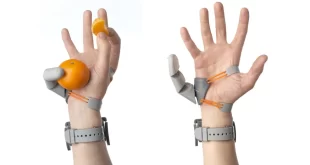Our team at UBC’s Nutritional Epidemiology and Big Data Analytics Laboratory (NEBA) has immediate openings for Masters and PhD students (with some potential opportunities for postdoctoral fellows) to work on a CIHR-funded research project. Our team provides high-quality and relevant research evidence on health status and determinants as it relates to lifestyle factors or health policies. The information is designed for a broad range of stakeholders including policy makers, researchers, educators, and the general public.
The overall goal of this study is estimating and predicting the burden of cardiovascular disease and healthcare use (bed days and costs) among Canadians, using lifestyle factors as major determinants (and under different scenario models).
As a graduate student in NEBA, a successful applicant could expect to:
- Develop and conduct research and modeling studies and write/edit analytical material for publication purposes.
In order to be considered, your application must clearly explain how you meet the following (essential qualifications)
Education
Graduation from a recognized university with specialization in a health-related field, such as epidemiology, health sciences, economics, mathematic, nutrition, dietetics, demography, or statistics. The specialization may also be obtained through an acceptable combination of education, training and/or relevant experience.
Experience
- Recent experience conducting quantitative analyses using microdata sources, such as surveys, Census, or health administrative data.
- Recent experience as a subject matter expert in one of the following health domains:
- Population health
- Nutrition and Dietetics
- Health services research
- Child health and development
- Chronic or infectious disease
- Health behaviours and risk factors
- Environmental measures
- Healthy living
- Recent experience applying theoretical frameworks to the analysis of statistical data in your subject-matter area.
- Recent experience in working with statistical analysis software, such as (SAS), STATA, R
Note: Recent experience is defined as occurring approximately in the past 2 years.
Asset Qualifications:
- Experience* in SAS programming
- Experience* in using coding languages such as R and Python
- Experience* in microsimulation modelling
Knowledge:
- Knowledge of the various data collection modes, methods and designs used, as well as their relative benefits and challenges
- Knowledge of advanced statistical theories, methods (including data gathering and analysis techniques), concepts and practices in order to plan and implement analytical research and modeling studies and to recommend and implement improvements to statistical programs.
Abilities:
- Ability to communicate effectively orally.
- Ability to communicate effectively in writing.
Personal Suitability:
- Planning and Organizing results
- Thinking things through
- Working effectively with others
- Showing initiative and being action oriented
- Demonstrating integrity and respect
Contact Info:
Please email a complete CV and cover letter to: nepoh.lab@ubc.ca
Assistant Professor & Canada Research Chair (CRC) in Nutritional Epidemiology for Population Health
Food, Nutrition and Health Program | Faculty of Land and Food Systems
Centre for Health Services and Policy Research (CHSPR) | Faculty of Medicine
The University of British Columbia | Vancouver Campus
FNH 215-2205 East Mall | Vancouver British Columbia | V6T 1Z4 Canada
Phone: 604 827 3564
Personal email: mahsa.jessri@ubc.ca |
Caractéristiques de l'emploi
| Catégorie emploi | Enseignement et recherche scientifique |
 Etudes Non Stop Etudes Non Stop
Etudes Non Stop Etudes Non Stop



